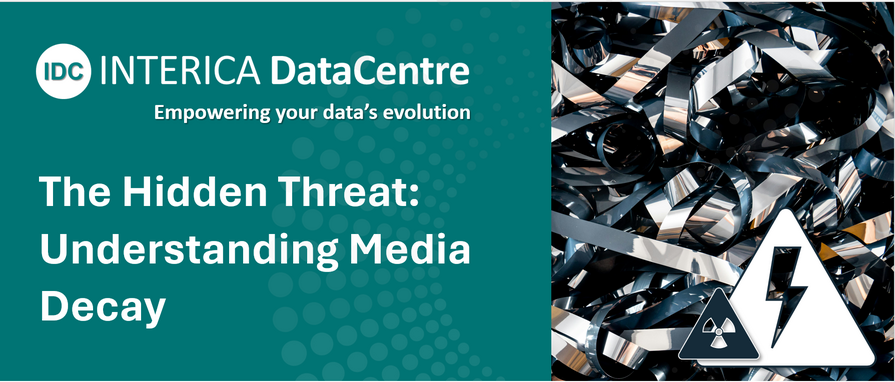
The Hidden Threat: Understanding Media Decay
In the fast-paced world of the energy sector, where decisions are often made based on data-driven insights, the integrity and accessibility of information is paramount. Yet, amidst the buzz of digital transformation and exciting new AI technologies, for many companies there’s a hidden threat to their data, tucked away out of sight in storage boxes: media decay.
Media decay is the gradual deterioration of physical storage mediums, such as tapes, disks, and paper documents, over time. And while it’s something that may not always be top-of-mind for industry professionals, its implications are far-reaching and potentially costly.
Media Decay: More than just a scratched CD
Imagine relying on critical data stored on aging tapes or disks, only to find that they have become corrupted or unreadable due to age, environmental factors or have become technologically obsolete. Suddenly, those insights you need to make informed decisions are out of reach, putting projects and operations at risk.
The risks associated with media decay extend beyond just data loss. In an industry as heavily regulated as oil and gas, compliance requirements demand the preservation and accessibility of historical records and documentation. Failure to meet these requirements not only exposes companies to legal and financial liabilities but also tarnishes their reputation in the eyes of stakeholders and regulators. Not to mention the cost of obtaining the data in the first place can be huge and the cost to replace it, if even possible, would be greater.
As the industry continues to evolve and embrace digital technology, the volume and complexity of data being generated is only increasing. Legacy systems and storage devices that are ill-equipped to handle the influx of data become bottlenecks, hindering productivity and innovation.
Key Takeaways:
- Modern media (tapes, disks) degrade too: Your data could be at risk.
- Data loss is costly: Fines and lost access to data can be harmful to your business.
- Be proactive: Regularly check media health, digitize and migrate data.
- Modernise for the future: Cloud, transcription and new standards secure data.
Stop media decay and protect your data for the future. Learn more about Interica DataCentre.
Data Management Challenges: Being Proactive
Addressing media decay requires a proactive approach that goes beyond simply migrating data to digital formats. It involves implementing robust data management strategies and leveraging technology to ensure the longevity and integrity of information assets. This includes regular monitoring and maintenance of storage systems and ensuring that the media holding the data is still viable, as well as periodic digitization of legacy documents and records.
It’s essential for companies to stay ahead of the curve by proactively transcribing data from ageing media and by embracing emerging technologies and standards in data storage and management. From cloud-based solutions to data transcription services, there are many tools and platforms available to help mitigate the risks of media decay and future-proof data assets.
Positioned for Success
Media decay may not always be the most visible threat facing the oil and gas industry, but its impact can be profound. By understanding the risks and taking proactive steps to address them, companies can safeguard their valuable data assets and ensure compliance with regulatory requirements, positioning themselves for success in an increasingly digital future.
Secure and Accessible Data Storage for the Energy Industry
Interica DataCentre provides a reliable archive for your data. We offer secure, environmentally controlled storage for physical media such as magnetic tapes, CDs, DVDs, film logs, and paper reports. The IDC team meticulously catalogues this data and makes it readily accessible through an online portal.
Our highly trained staff have extensive experience with diverse media types and can efficiently transcribe your data into various formats, including cloud-based storage for easy and secure access.


